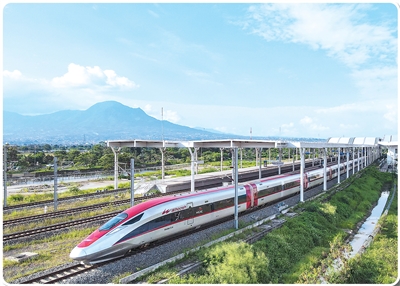
From exporting "Made in China" products to exporting "Made in China" and even "Created in China" rules, standards—once regarded as dry technical language—are quietly becoming a form of "soft infrastructure" connecting China and the world.
According to data recently released by the State Administration for Market Regulation, during the 14th Five-Year Plan period, China led the formulation of 1,079 international standards and promoted the mutual recognition of more than 500 standards between China and other countries. Chinese standards have been applied in eight railway cooperation projects, including the China-Kyrgyzstan-Uzbekistan Railway, the China-Laos Railway and the Jakarta-Bandung High Speed Railway in Indonesia. China has also launched standardized agricultural demonstration zones covering 100,000 mu in African countries such as Zambia, further expanding the global influence of Chinese standards.
More Chinese standards are going global. As the first high-speed railway in Indonesia and Southeast Asia, the Jakarta-Bandung High Speed Railway is a flagship project aligning China's Belt and Road Initiative with Indonesia's Global Maritime Fulcrum vision. Engineers from both countries jointly carried out dozens of local adaptations of Chinese standards based on local conditions, enabling the seamless overseas application of China's high-speed railway standards across the entire system, all elements and the full industrial chain.
Industries have been empowered to go global and costs have been lowered to benefit enterprises. In recent years, while promoting the internationalization of Chinese standards, the State Administration for Market Regulation has vigorously encouraged Chinese enterprises to actively participate in international standard-setting. Through policy incentives, institutional innovation and talent cultivation, the administration has enabled small and medium-sized enterprises to "dare to participate, are capable of participating, and possess the know-how to participate" in international standard development, ensuring that standard internationalization genuinely supports the high-quality development of the real economy.
 附件:
附件: